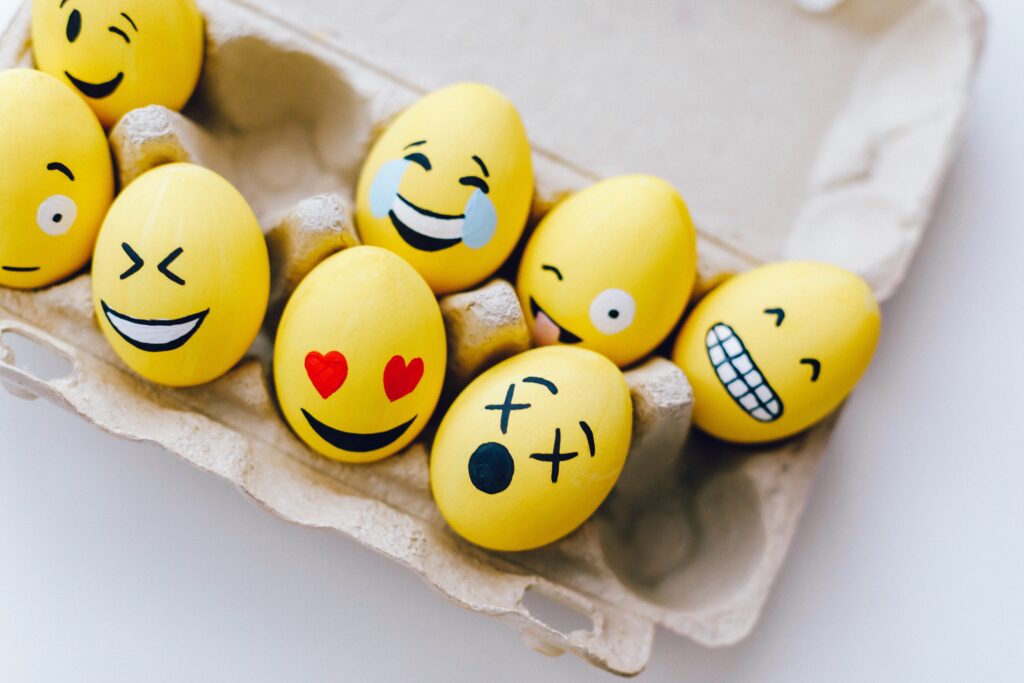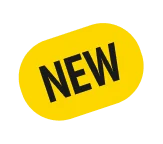In the vast digital landscape where attention spans are extremely divided between the thousands of pieces of information we receive everyday, emojis emerge as the unsung heroes, weaving tales of engagement and connection.
Picture this: you’re scrolling through your Instagram feed and you see something different and unique, something that’s not a boring word full of text, but communicates just as much; a little alien 👽, maybe a cute raccoon 🦝, perhaps a bathtub🛁, or mayhaps a lucky four-leaf clover emoji 🍀 can catch your eye. In the midst of all this text, the thing your eyes first went to were the emojis in this paragraph, weren’t they
The Psychology behind Emojis
Emojis have evolved beyond personal chats. We can see that in the way that Gen Z has pioneered a unique and dynamic use of emojis, transforming them into a language of their own. Emojis convey emotions and opinions in concise visual language.
These seemingly straightforward symbols even hold an underlying tone of sarcasm, where Gen Z users of social media oftentimes use emojis to convey complex emotions and opinions with a touch of humour.
A tiny example of this would be the usual 😂, and the 🤣 emojis that one would normally use when they find something funny has now been replaced with the 😭 emoji.
Emojis have emerged as a cultural phenomenon, as a testament to the ever-shifting landscape of language in the digital era. Studies show that the use of abbreviations like “lol” or “lmao” have reduced and are conveyed through the non-verbal medium that emojis offer. There are some psychological reasons that go behind the use of emojis. In our daily lives, we subconsciously mirror each other’s emotions during face-to-face conversations, fostering connections and expressing empathy.

In 2014, a scientific study revealed that viewing smiley faces online activates the same brain 🧠 regions as when encountering a genuine smile in person, demonstrating the power of emojis to evoke emotional responses. What’s intriguing is that our brains have adapted to this phenomenon over time, creating a new cognitive pattern through the pervasive use of emojis in online communication. They transcend language barriers, speaking 🗣️ directly to the heart of the matter.
It is also proven that the brain processes images faster than text, and emojis tap into that very psyche, acting as visual 👀 shortcuts that spark immediate emotional responses. From the joy of a 😄 to the curiosity evoked by a 🤔, emojis enable marketers to craft messages that resonate on a deeper, emotional level. Instagram’s findings provide tangible evidence of this shift, showcasing the transformative impact emojis have had on our cognitive and linguistic landscape.
Can you use emojis for your brand?
Now how can you, as a digital marketer make use of emojis for your brand on social media? There’s one thing to note. Your brand has a personality of its own. To enhance its personality, emojis can play a major role in adding a playful, human touch into your digital communication. Studies reveal that posts on Instagram and tweets on X with emojis increase engagement rate by 48% and 25%, respectively.
For example, in 2015, we could see a global brand like Domino’s Pizza make ingenious use of the 🍕 emoji. On the former Twitter, they utilised these pizza emojis to allow customers to place orders with a simple tweet. Not only was it convenient, but it also added a playful twist to the customer experience – turning pizza ordering into a delightful experience.
Do’s and Don’ts of using emojis for your brand
However, achieving the perfect balance ⚖️ is the key to a successful emoji strategy. Emojis must be used carefully, and it’s important not to overdo it. Here are some do’s and don’ts when it comes to using emojis for a brand:
✅ Align your emojis with your brand voice and personality.
If you’re an FnB (food and beverage) brand, embrace the 😋 and 🍺. If you’re a clothing brand, keep up with👕and🪡, and so on.
🚫 Avoid being cryptic with your communication.
Your audience should be able to understand the intended message without feeling confused.
✅ Test and analyse.
Experiment with different emojis in different situations, and tailor the emojis you use as a brand according to a particular strategy.
🚫 Don’t use too many, or too many irrelevant emojis.
A sea of emojis can tend to be overwhelming and dilute your message – and using irrelevant and random emojis can go against your brand language and detract from your brand’s professionalism.
Emojis used the right way can enhance engagement and add a visual appeal to the text you put out in a way that captures the attention of the audience. However, what works for one brand may not work for another. Stay attuned to your audience’s preferences by continually testing the waters!
How to integrate emojis in your brand language?
You may still have some questions about how you can seamlessly integrate them into your digital marketing strategy. Here are some ways you can do so:
- Social Media Captions: Enhance your captions with emojis to convey emotion and grab attention.
- Email Marketing: Boost the visual appeal of your emails with emojis to break up text and guide the reader’s eye.
- Hashtags and keywords: Create branded hashtags and keywords accompanied by emojis in the captions to encourage user engagement.
- Product Descriptions: Make your product descriptions pop with relevant emojis to highlight features and benefits.
Conclusion
As we navigate the ever-evolving landscape of digital communication, embracing emojis isn’t just a trend; it’s a strategic move towards building meaningful connections with your audience.
So, don’t hold back – sprinkle those emojis in, tell your brand’s story through these vibrant little symbols, and watch the magic unfold! In a world inundated with information, emojis are your golden ticket to standing out, connecting, and making an impact.
Anyway, here’s a depiction of you reading this blog using only emojis:
🌐🔍📱💻📖🤔😲😱🤯🤓



